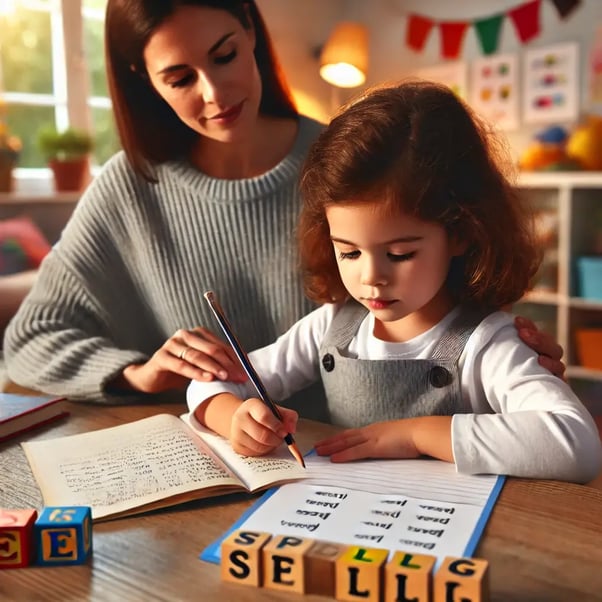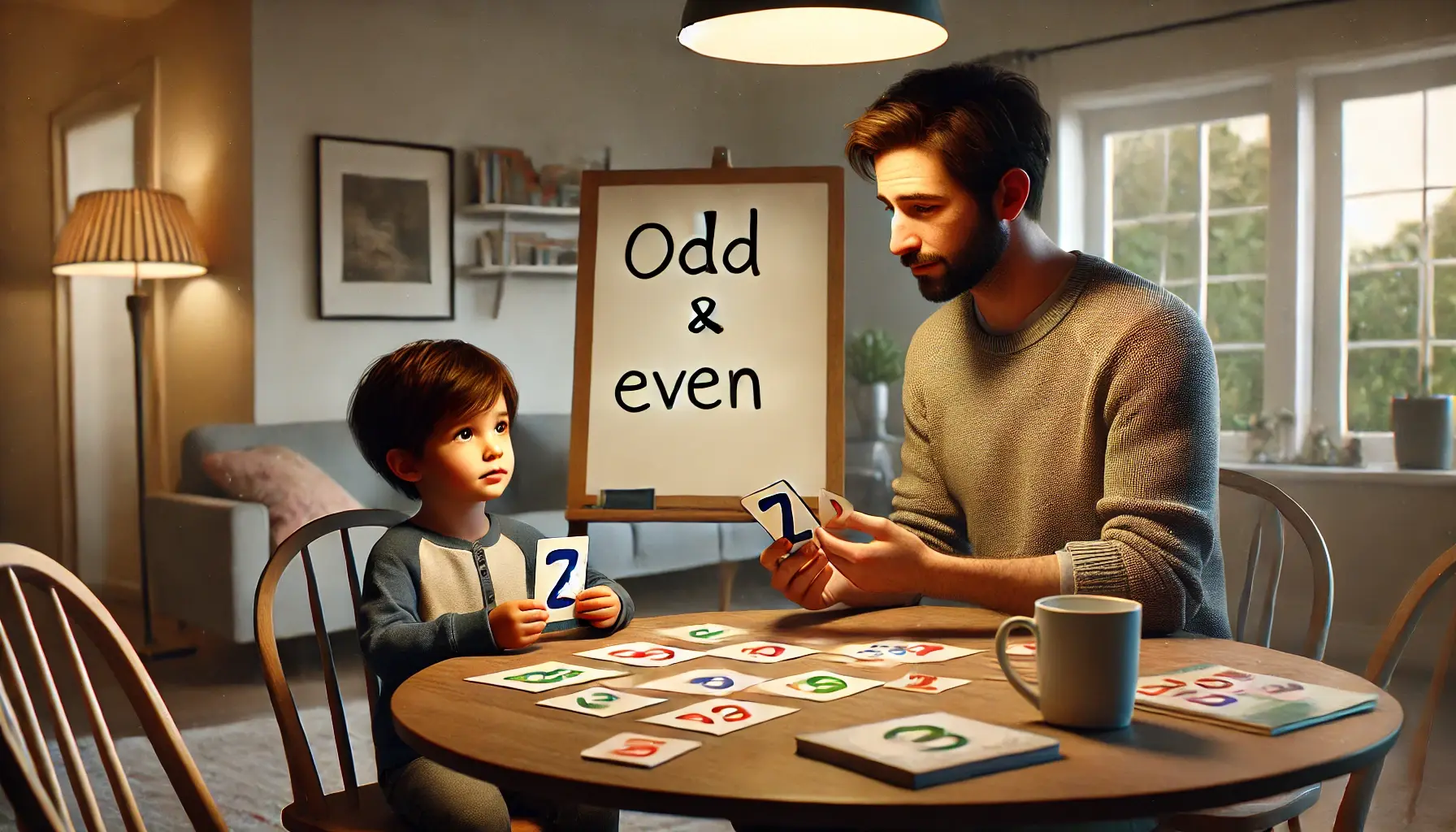
Teaching spelling to children is essential for developing their language skills and progressing from basic letter recognition to more advanced spelling patterns. Spelling serves as a bridge between reading and writing, making it integral to overall literacy development. As a parent, you play a crucial role in making spelling enjoyable and rewarding, boosting your child's confidence. By using a mix of practical, fun methods, you can effectively help your child build a strong foundation in spelling and language skills.
Why Teach Spelling?
Spelling is more than just getting words right—it's a fundamental skill that supports communication, reading, and writing. When children understand how words are constructed, they develop a deeper grasp of language, which is vital for their academic growth and everyday interactions.
What Are Spelling Words?
Spelling words are specific words selected to help children learn to recognize, read, and spell accurately. These words are usually chosen based on the child's age, reading level, and complexity. For example:
- For younger children: Start with simple, common words like "cat," "hat," or "sun."
- For older children: Introduce more challenging words, like "lightning" or "beautiful."
By gradually increasing difficulty, children build confidence and expand their vocabulary step by step.
Importance of Spelling in Early Learning
Spelling is crucial for cognitive development and literacy skills, as it helps children understand the structure of words and language. It enhances academic success, aids self-expression, and improves communication. A strong foundation in spelling is directly linked to better reading comprehension, fluent writing, and greater confidence in language use.
Ways to Teach Spelling to Kids
1. Phonics-Based Spelling
Phonics is an effective method for teaching children how letters and sounds work together. Here’s how you can incorporate it into spelling lessons:
- Emphasize Pronunciation: Guide children to pronounce each sound clearly in words, breaking down complex words into individual sounds. This not only helps with spelling but also improves phonemic awareness, which is vital for reading.
- Word Families and Patterns: Group words with similar patterns, like “high,” “sigh,” and “light.” Identifying common patterns makes spelling more predictable and manageable for children.
2. Hands-On Spelling Activities
Engaging children through hands-on activities makes learning spelling more enjoyable and memorable:
- Write on the Palm: Encourage kids to write words on their palms with their fingers. This creates muscle memory and reinforces spelling through touch.
- Use Creativity: Integrate spelling into art by painting words, making collages, or trying calligraphy. This approach allows children to engage visually while learning.
- Cut Out Words: Have children cut out letters from magazines to form words. This tactile exercise helps with letter recognition and word formation.
3. Spelling Worksheets
Worksheets can be customized to include a variety of interactive spelling exercises:
- Create Flip Cards: Make cards with images on one side and words on the other. Children can match the images to their corresponding words, enhancing word recognition.
- Color the Words: Design worksheets where children color each letter in a word. Associating colors with letters makes the learning experience sensory-rich and aids in memory retention.
.png?width=711&height=400&name=Genie%20(7).png)
4. Word Chains
Word chains are a fun way to improve vocabulary and reinforce spelling patterns:
- Make Connected Words: Start with a word and let children create new words from the last letter of the previous one (e.g., "dog" → "goat" → "tiger"). This activity encourages creativity and enhances language flexibility.
- Word Chain Game: Turn it into a competitive game, where children race to form word chains within a time limit, boosting quick thinking and vocabulary.
5. Flashcards
Flashcards are a simple yet effective tool to reinforce spelling:
- Make Flashcards: Create flashcards with words on one side and pictures or related clues on the other. This visual approach helps children connect words to meanings, enhancing recall.
.png?width=703&height=395&name=Genie%20(6).png)
6. Word Games
Word games can make spelling practice more engaging:
- Play Scrabble: Use Scrabble tiles to form words. Encourage children to experiment with different combinations and longer words. This game adds a fun, competitive element to spelling lessons.
- Play Word Bingo: Create Bingo grids with letters or words, allowing children to mark off words as they are called out. This game promotes quick recognition and adds excitement to spelling practice.
.png?width=701&height=394&name=Genie%20(8).png)
7. Finding Words in Books
Incorporating spelling into daily reading can be both educational and enjoyable:
- Search for Words: Ask children to find specific words in books, magazines, or newspapers. This exercise builds attention to detail and improves word recognition skills. It also helps children see spelling in real-life contexts.
8. Interactive Spelling Games
Technology can be a valuable ally in teaching spelling:
- Use Mobile Apps: Many educational apps offer interactive spelling games for kids, adapting to different levels of learning. These apps make spelling fun and allow for gradual progress.
- Pass the Ball: Try the “Pass the Ball” game, where children pass a ball while spelling a word letter by letter. This adds a physical element to learning, improving focus and memory.
9. Get Parents Involved
Parents play a key role in reinforcing spelling skills:
- Read More: Reading regularly with your child introduces new words naturally. Choose books that contain targeted vocabulary to reinforce specific spelling patterns.
- Spell and Eat: Turn mealtimes into spelling sessions by rewarding correct spellings with bites of food. This approach makes spelling informal, fun, and memorable.
10. Other Essential Methods
- Highlight Difficult Words: Focus on identifying and highlighting challenging words. Have children pay extra attention to tricky letters, improving mastery of commonly misspelled words.
- Break It Down: Teach children to break words into syllables, making complex words more manageable. This step-by-step approach makes spelling easier to grasp.
- Copy, Copy, Recall: Encourage children to copy a word twice, then try to recall it without looking. This method reinforces memorization through repetition.
- Sing: Create songs or chants for spelling words. Adding rhythm makes spelling easier to remember, as kids often enjoy musical learning.
- Use Computer Applications: Introduce children to digital tools like Microsoft Word or Grammarly, which offer spelling checks. This helps familiarize them with technology while improving spelling.
How Genie Academy Can Support Your Child’s Learning
At Genie Academy, we’re all about making learning both fun and effective! We offer tutoring in essential subjects like spelling, math, reading, writing, and even abacus, helping your child excel at every step.
Here’s how we make it work for you and your family:
- Expert Tutors: Our tutors are experienced and skilled in working with kids, ensuring that each lesson is engaging and tailored to your child's learning style.
- Online and Offline Options: Whether you prefer online sessions or in-person learning, we’ve got you covered.
- Multiple Locations: Genie Academy has several locations, including East Brunswick, Hillsborough, Marlboro, South Brunswick, Plainsboro, and South Plainfield. These locations make it easy for local families in New Jersey to access our tutoring services. We're dedicated to supporting your child’s growth and making academic success accessible for all.
How Learning Spelling Can Help Children
Learning to spell enhances children’s reading and writing skills, as it allows them to recognize words more quickly. This improved word recognition leads to greater fluency and accuracy, which boosts their confidence in written communication and encourages them to express themselves more clearly.
Spelling also broadens a child’s vocabulary by introducing them to new words. As they encounter and practice these words, their language comprehension improves. This expanded vocabulary not only aids in writing but also enhances overall language skills, making it easier for children to understand complex texts and engage in more meaningful conversations.
Moreover, spelling can help identify potential learning difficulties, such as dyslexia, at an early stage. Struggles with spelling may indicate underlying issues that require attention. Early detection allows for targeted interventions, which can significantly improve literacy outcomes and support children in reaching their full academic potential.
Conclusion
Spelling is a foundational skill that contributes to broader literacy and communication. It’s a gradual process that becomes enjoyable when supported by engaging methods. By incorporating a mix of hands-on activities, games, and daily reading, you can make spelling a fun and effective part of your child’s language development journey.





